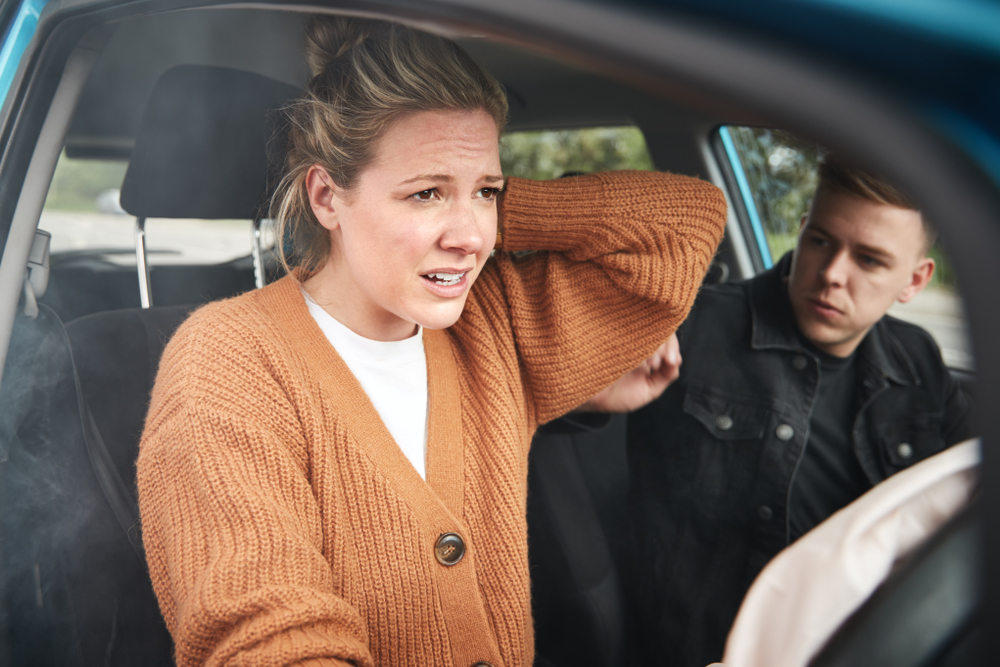
Alabama Guest Passenger Statute: How It Works
In Alabama, navigating the aftermath of a car accident as a passenger involves understanding a unique piece of legislation: the Alabama Guest Passenger Statute. This law, enshrined in Alabama Code § 32-1-2, sets forth specific conditions under which passengers, termed as “guests,” can seek compensation from drivers for injuries sustained in accidents.
The Alabama Guest Passenger Statute applies exclusively when the injured party is considered a “guest” — that is, someone who has not provided payment or tangible benefit for their ride. This definition extends beyond mere monetary transactions, encapsulating any exchange that could be construed as beneficial to the driver, excluding passengers in commercial vehicles like taxis or rideshares from its purview.
Under this law, a guest’s ability to claim compensation is significantly restricted. Ordinary negligence on the part of the driver, such as failing to signal or making an unsafe lane change, does not suffice for a guest to seek damages. Only in instances of willful or wanton misconduct — actions showing a reckless disregard for the safety of others, like driving under the influence or engaging in excessive speeding — can a guest move forward with a claim.
Despite its stringent limitations, the statute does not render passengers entirely without recourse. Exceptions exist that, when met, allow for the pursuit of compensation. These include scenarios where the passenger provides some benefit to the driver, is involved in carpooling arrangements, or is a minor or incapacitated individual. Such nuances underscore the complexity of the statute and the importance of legal guidance in these matters.
In this article, we’ll take a closer look at the definitions, provisions, limitations, and the critical role of personal injury attorneys in navigating the Alabama Guest Passenger Statute. If you’d rather speak directly with an attorney to learn more, feel free to call us anytime.
Definition of a “Guest” in the Alabama Statute
The Alabama Guest Passenger Statute delineates a clear boundary between passengers who can and cannot seek compensation from the driver in the event of an accident. Central to this determination is the classification of an individual as a “guest.” According to Alabama Code § 32-1-2, a “guest” is defined not merely by their presence in a vehicle but by the nature of their arrangement with the driver. Specifically, a guest is someone who:
- Has not provided any form of payment or compensation for the ride.
- Is transported without any tangible benefit being conferred to the driver in exchange for the transportation.
This definition is broad and encompasses various non-monetary benefits that might classify a passenger as more than just a guest. For instance, if the transportation offers any mutual benefit to both the driver and the passenger, such as shared errands or contributing to fuel costs, the law may not consider the passenger a “guest” under its strictest interpretation.
Key Points to Remember
- Payment Isn’t Just Money: Compensation extending beyond cash transactions, like helping with groceries or contributing to gas, can disqualify someone from being considered a guest.
- Mutual Benefit Matters: If both the driver and passenger gain from the transportation, the passenger may not fall under the guest classification, opening avenues for compensation in the event of negligence.
Provisions and Limitations of the Alabama Guest Statute
The Alabama Guest Passenger Statute specifically addresses the conditions under which drivers are shielded from liability for injuries that “guests” in their vehicle may suffer during an accident. The essence of this statute is its aim to protect drivers from legal claims by passengers who were not paying for the ride, emphasizing a distinction between informal carpooling scenarios and commercial driving services.
Crucial Elements of the Statute
- Protection for Drivers: The statute’s primary provision is to limit the circumstances under which drivers can be held liable for passenger injuries. This legal shield is predicated on the absence of a financial transaction for the ride, suggesting a non-commercial, informal agreement between the driver and the passenger.
- Exception for Willful or Wanton Misconduct: A critical exception to this protective shield arises when a driver’s actions are deemed to be willful or wanton misconduct. This legal threshold is significantly higher than mere negligence, requiring proof that the driver consciously disregarded the safety of others. Actions falling into this category include:
- Operating the vehicle under the influence of substances.
- Reckless behaviors like speeding excessively or participating in illegal races.
Restrictions on Passenger Claims
- Exclusion of Ordinary Negligence: Passengers, referred to as guests under the statute, are precluded from seeking damages for accidents stemming from the driver’s ordinary negligence, such as simple traffic violations. This aspect of the law highlights its intention to afford a degree of immunity to drivers offering complimentary rides.
- Defining Misconduct: Distinguishing between ordinary negligence and willful or wanton misconduct centers on the driver’s awareness and intention. Demonstrating willful or wanton misconduct necessitates showing that the driver was cognizant of the risks yet proceeded with their dangerous actions regardless.
By delineating specific protections for drivers and establishing a high bar for passenger claims, the Alabama Guest Passenger Statute plays a pivotal role in personal injury cases involving vehicle passengers. It underscores the legal distinction between casual ridesharing and formal transportation services, setting strict criteria for when passengers can pursue compensation. For anyone involved in a car accident as a passenger in Alabama, grasping the nuances of these provisions and limitations is key to understanding their legal standing and potential for recovering damages.
Exceptions to the Alabama Guest Passenger Statute
While the Alabama Guest Passenger Statute imposes significant limitations on a guest’s ability to seek compensation after an accident, it does not entirely preclude the possibility. Understanding the exceptions to this statute is crucial for passengers who find themselves injured and unsure of their legal standing. Below, we look at several specific exceptions that can open the door for guests to pursue claims, alongside hypothetical scenarios to illustrate these nuances.
Benefit Conferred Upon the Driver
One key exception arises when the passenger provides a benefit to the driver, making the journey mutually advantageous rather than a simple act of courtesy. This could range from sharing fuel costs to the passenger providing navigation assistance on a trip that serves a common purpose for both parties.
- Scenario: Alice and Bob carpool to work together. Alice, who doesn’t drive, contributes to the parking fees and occasionally buys coffee for Bob, who drives. If an accident occurs due to Bob’s negligence, Alice might argue that her contributions constituted a benefit, thereby exempting her from the guest classification under the statute.
Carpooling Situations
Carpooling inherently implies a mutual benefit for all involved parties, often making it easier to argue against the guest status. This is particularly relevant in regular commuting arrangements where expenses or driving responsibilities are shared.
- Scenario: A group of coworkers rotate driving duties each week to share the commuting burden. During one of these trips, an accident happens. Given the structured arrangement of shared responsibility, the passengers could be seen as providing mutual benefits, potentially bypassing the guest statute’s limitations.
Minors and Incapacitated Individuals
The statute also considers the capacity of the passenger to consent to the ride, with minors and incapacitated individuals often being exceptions. Their inability to fully understand or agree to the terms of transportation may exclude them from the guest classification.
- Scenario: If a minor is offered a ride home from a school event by a family friend and an accident occurs, the minor’s status could allow for compensation claims despite the guest statute, due to their inability to legally consent.
These exceptions highlight the importance of understanding the specific circumstances surrounding each case. For individuals injured in car accidents as passengers in Alabama, the seemingly strict limitations of the Guest Passenger Statute may not always apply. By examining the relationship between the driver and passenger, the nature of their journey, and the specific details of their arrangement, it becomes possible to identify potential pathways for legal recourse.For anyone navigating these issues, an experienced Alabama car accident attorney can help clarify these exceptions, assess the viability of a claim, and provide the strategic guidance needed to pursue justice and compensation effectively.
The Role of Personal Injury Attorneys in Navigating the Alabama Guest Passenger Statute
Navigating the complexities of the Alabama Guest Passenger Statute demands not just a deep understanding of the law but also a strategic approach to legal advocacy. This is where personal injury attorneys play an essential role. Their experience and understanding are critical for individuals seeking compensation under the challenging conditions set by the statute. Let’s explore how these legal professionals make a difference.
Legal Guidance and Strategy
Personal injury attorneys can provide a comprehensive understanding of Alabama’s legal landscape, including the nuanced interpretations of the Guest Passenger Statute. They can:
- Assess the Viability of Claims: Attorneys evaluate the specifics of each case against the statute’s requirements, determining the likelihood of overcoming its limitations.
- Clarify Legal Definitions: They demystify complex legal terms like willful or wanton misconduct, explaining how these apply to your situation.
Investigative Resources
A thorough investigation forms the backbone of any claim under the Guest Passenger Statute. Personal injury lawyers leverage various resources to build a compelling case:
- Accident Reconstruction: Utilizing experts to reconstruct the accident scene, providing a clearer picture of the events leading to the injury.
- Gathering Evidence: Collecting crucial evidence such as police reports, eyewitness accounts, and surveillance footage to support claims of willful or wanton misconduct.
Strategic Legal Actions
- Filing Claims: Personal injury attorneys navigate the legal system to file claims efficiently, adhering to the procedural nuances and deadlines.
- Negotiating with Insurance Companies: They engage in negotiations, often leveraging their understanding of the statute to argue for fair compensation despite its restrictions.
Litigation Support
In cases where negotiation does not yield a satisfactory outcome, personal injury lawyers are prepared to:
- Represent Clients in Court: Offering robust representation in court to argue the case before a judge or jury.
- Appeal Denied Claims: If initial claims are denied, attorneys can pursue appeals, challenging the application of the statute or arguing for the recognition of exceptions.
Consult an Experienced Personal Injury Lawyer To Learn More
If you or someone you know has been involved in a car accident in Alabama, whether as a driver, passenger, or pedestrian, understanding your rights and options is critical. Navigating the legal intricacies of car accidents and injuries, especially under the Alabama Guest Passenger Statute, requires experienced guidance. Jay Pickering Law Firm is here to offer that support.
Reach out for a 100% free consultation with an experienced personal injury attorney for valuable insights into your specific situation. During this consultation, you’ll have the opportunity to discuss the details of your case, gain a clear understanding of the applicable laws, and explore the best path forward for seeking justice and compensation.
Don’t let the complexities of the legal system deter you from seeking the compensation and justice you deserve. At Jay Pickering Law Firm, we are ready to help you understand your situation and advocate on your behalf.

Attorney Jay Pickering brings over 27 years of unwavering dedication to personal injury law, with a sharp focus on representing those injured in car, truck, and motorcycle accidents across Alabama. A proud alum of the University of Alabama School of Law, Jay is a member of the Alabama State Bar and the American Bar Association.
